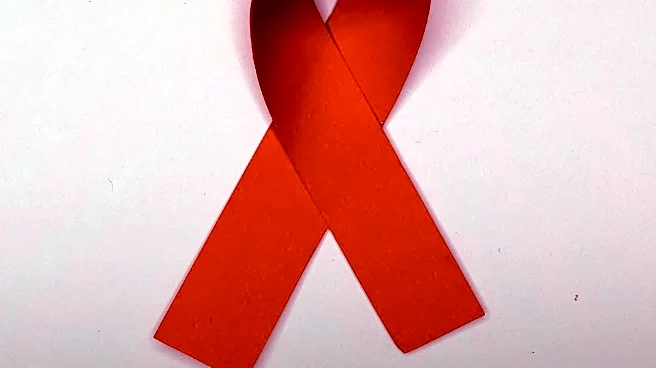What's Happening?
Gilead Sciences has announced a partnership with the U.S. State Department and PEPFAR to deliver lenacapavir, a twice-yearly injectable HIV-1 capsid inhibitor, for pre-exposure prophylaxis (PrEP). This collaboration aims to provide lenacapavir to up to two million people in resource-limited countries over three years. Gilead is offering the drug at no profit to support the U.S. government's efforts in combating the HIV epidemic. The partnership also involves the Global Fund, focusing on accelerating access to lenacapavir in high-incidence countries.
Why It's Important?
This partnership is crucial in the global fight against HIV, as it aims to make a groundbreaking HIV prevention drug accessible to millions in low- and lower-middle-income countries. By providing lenacapavir at no profit, Gilead is supporting efforts to reduce new HIV infections and advance public health goals. The collaboration highlights the importance of international cooperation in addressing health crises and could serve as a model for future initiatives targeting other diseases. The initiative also underscores the role of American innovation in global health solutions.
What's Next?
Gilead plans to complete regulatory submissions for lenacapavir in 18 countries by the end of 2025, covering regions with high HIV burdens. The company is working with generic manufacturers to ensure sufficient supply and drive down costs. Gilead's strategy includes tiered pricing and public-private partnerships to support access in middle-income countries not covered by the voluntary licensing program. The success of this initiative could lead to expanded access to lenacapavir and similar drugs in other regions, furthering efforts to end the HIV epidemic.
Beyond the Headlines
The partnership between Gilead and PEPFAR raises ethical considerations regarding drug pricing and access in resource-limited settings. By providing lenacapavir at no profit, Gilead is setting a precedent for pharmaceutical companies to prioritize public health over profits. This approach could influence industry standards and encourage more companies to adopt similar strategies for other life-saving medications. The collaboration also highlights the importance of addressing health disparities and ensuring equitable access to medical innovations.









